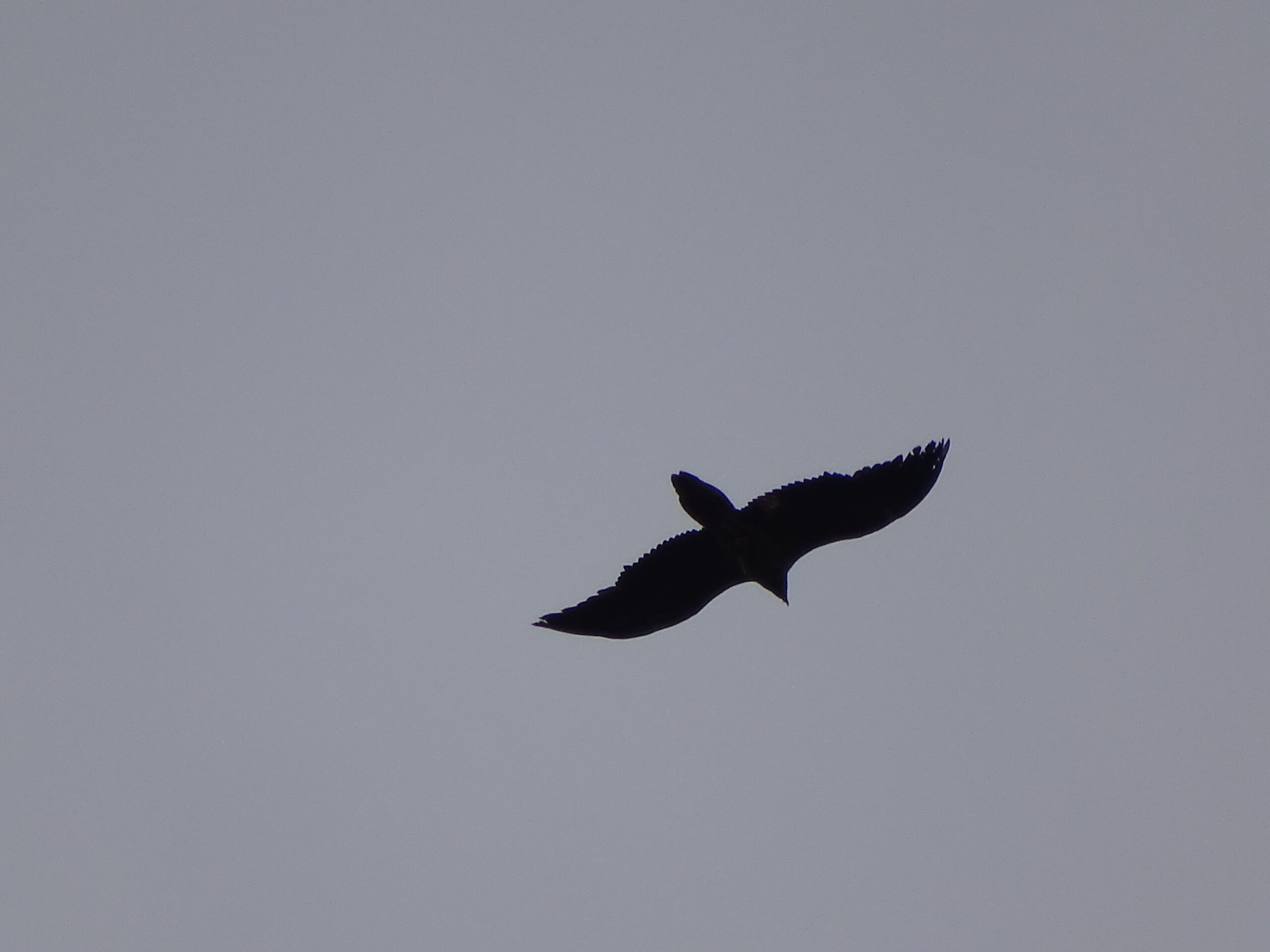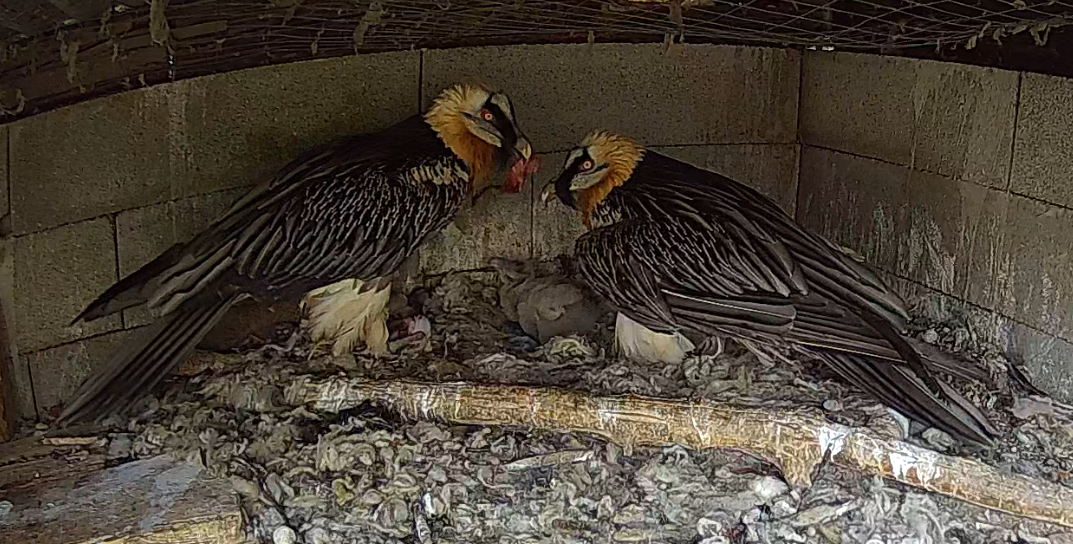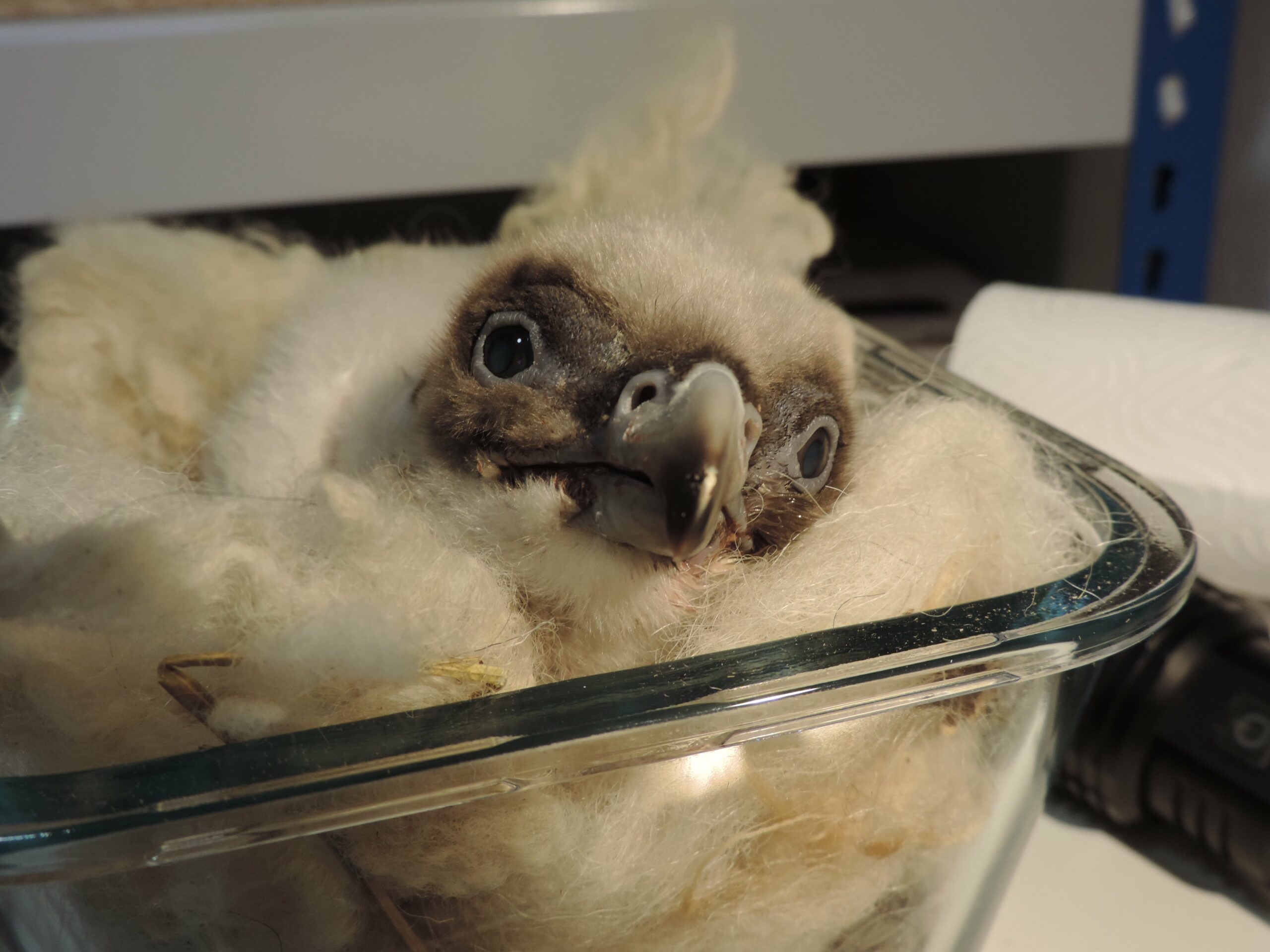
The Generalitat Valenciana, the government for the Spanish autonomous region of Valencia, is leading the way in protecting vultures in Europe from the effects of lead poisoning by banning the use of lead ammunition in two large hunting areas at the heart of the Maestrazgo mountains, where bearded vultures are being reintroduced
Lead poisoning
The main threat to the four species of European vultures is illegal wildlife poisoning, the setting of bait that is laced with poison, to control pest predators of livestock or game species. However, lead poisoning from ammunition used by game hunters is an often-overlooked threat to vultures, that is widespread and may have population-level impacts.
When an animal is shot, a lead bullet fragments widely throughout the carcass. Often the carcass and viscera of these animals are left behind and out in the open by hunters. Whilst feeding on the carcasses of animals that have been shot vultures can then ingest lead fragments.

Lead is highly toxic and when ingested in large quantities from the remains of shot animals can cause death in vultures. The more common effects on vultures are actually sub-lethal, reducing their breeding performance and negatively altering their movement patterns,and increasing the likelihood of collisions with power lines.
Impacting populations
The risk of lead poisoning has been known for decades. The impact has been widely established in the scientific press. The Californian condor, for example plummeted towards the edge of extinction as a result of the direct ingestion of hunters’ ammunition in carcasses. Following a ban on the use of lead ammunition and after intensive conservation efforts, the population is now recovering.
Lead has also impacted our bearded vulture reintroduction programme in the Alps, with at least seven of the 204 birds we released into the wild dead as a result of this unintentional poisoning.

Protecting vultures
In recognition of the impacts of lead poisoning, we here at the Vulture Conservation Foundation and other conservation organisations are working with hunters and governments towards passing laws and regulations to minimise this threat.
Lead poisoning was recognised as an important issue in the Vulture Multi-species Action Plan a global plan for the conservation of 15 species of vultures, co-developed by the Vulture Conservation Foundation which called for the phasing out of its use.
Across Europe there have been several initiatives to reduce the use of lead ammunition and promote lead-free hunting practices. In the Italian Alps the use of lead ammunition has been banned in the Stelvio National Park and Sondrio Province. At Hohe Tauern National Park in Austria, in the Pyrenees, and as part of our GypConnect and GypHelp LIFE conservation projects, at the Cévennes National Park in the French Massif Central, and in Haute-Savoie, pilot project where hunters try non-lead ammunition are being carried out.
Following all this, we are incredibly pleased to hear the news that the Generalitat Valenciana have banned the use of lead ammunition in two areas in Maestrazgo, a very positive move to protect vultures there including birds released as part of the new bearded vulture reintroduction project.
We hope other protected areas and regions follow this example – lead is toxic to humans and wildlife alike, and there are alternatives, so continuing to use lead ammunition is senseless.




